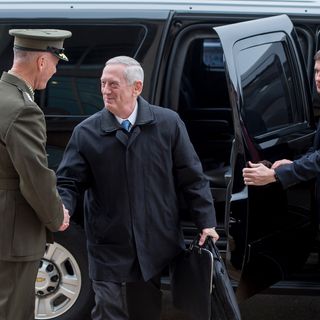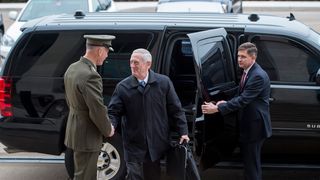Defence Secretary James Mattis was in Asia last weekend for his first trip abroad since taking over the Pentagon. His decision to visit South Korea and Japan before other US allies was a deliberate signal of the priority Donald Trump’s administration is likely to place on Asia. But it was also visit born out of necessity.
Mattis needed to deliver two key messages to calm America’s anxious Northeast Asian allies. The first was to reassure Seoul and Tokyo that the Trump administration would stand by its treaty commitments despite the President’s history of lambasting these alliances as bad deals for America. While Trump has expressed his “ironclad” support for both allies in phone calls since the election, his private assurances have not addressed the specific commitments officials wanted to hear.
Global Mattis: The new Secretary of Defense

By contrast, Mattis said all the right things. By affirming Washington’s intention to deploy Thaad – a missile defence system – inside South Korea as protection against North Korean missiles, and by explicitly stating that the disputed Senkaku/Diaoyu Islands were covered under Article 5 of the US-Japan Security Treaty, Mattis provided much needed substance to American security assurances. His remarks were welcomed by US allies and partners across the region.
But Asian allies are not only worried about the United States having their back. Many fear Trump’s hawkish stance on China, Taiwan, and North Korea will inject an unmanageable degree of friction into US-China relations, leading to a more volatile Asia-Pacific. As such, Mattis’ second message needed to reassure the region that Trump would not take a sledgehammer to Asia’s fragile power balance.
On this score, Mattis did what he could within the confines of Trump’s erratic comments on Asia. He quashed rumours about American blockades in the South China Sea and may have privately dismissed pre-emptive strikes on North Korea. But he said little to alleviate fears about Trump’s strategy on China or Taiwan. Furthermore, as Mattis has less influence on the administration than Trump’s other advisors, Asian nations remain uncertain about the degree to which the defence secretary can translate his comforting talking points into policy.






